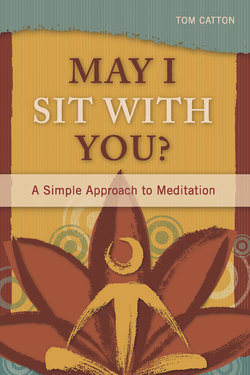Читать книгу May I Sit with You? - Tom Catton - Страница 21
На сайте Литреса книга снята с продажи.
ОглавлениеCHAPTER TEN
HAPPINESS
Each morning, sitting upon my meditation cushion, I’m greeted by a sign with a quote credited to Pierre Teilhard de Chardin, the progressive Christian contemplative and philosopher. It expresses the sentiment that joy was an infallible sign of God’s presence. Teilhard de Chardin was a fascinating, if not complex, figure and spiritual teacher whose teachings are worth exploring. But every day that I look at the sign in my meditation area, I am reminded of this simple truth: The quest for joy and happiness is natural; we just seem to look in all the wrong places.
My previous book, The Mindful Addict, was written with the intention of showing others that the practice of a spiritual path will bring both guidance and happiness to our lives. This happiness is born from within, rather than from any outer influence and condition.
Our practice is challenged each day. We hear about or experience incidents that invade our lives, which seem to throw insults and obstacles toward any attempts to find happiness. There is a blunt-yet-popular saying that tries to assure us: “Life is hard, and then you die.” This statement is somewhat true, yet I refuse to embrace this as my worldview of life in general, let alone adopt it as my mantra.
Our practice is to return to the simplicity of the present moment. We find shelter from the intrusion of malevolent thoughts by surrendering to our benevolence within. The goal of the spiritual practice is to soften, not harden, our lives. Ultimately, we must change how we view our life and our inevitable death. We realize the need to accept things peacefully, allowing all situations, good or bad, to act as a catalyst for our continued change. We learn to respond to praise or rejection with an attitude of gratitude. This is equanimity.
The practice of meditation—coupled with service to others—will not assure a gold star will be placed next to our name. Challenges will continue to confront us, but returning to the practice again and again with the willingness to start over will have a softening effect on our daily lives. We realize that we are not victims and prisoners of this life after all, but rather participants in our own moment-to-moment liberation.
Why all the talk about the Eleventh Step as it relates to the practice of meditation?
Why do I write about it, speak to others about it, and practice it?
I’m convinced that there is nowhere else to find true refuge in this world; the practice transforms my world into a hermitage, and my daily routine becomes a retreat. Meditation demands nothing of me but my full attention, and that is a small price to pay for the infinite peace it brings to my life.
I read essays and books on this subject from many eloquent writers, mostly meditation teachers; some possess letters signifying various degrees and titles that follow their names. The essays and books may discuss the subject of meditation from varying perspectives and viewpoints. However, the conclusion, for me, is always the same.
There must be something to this meditation thing.
I have no formal education, but I have practiced meditation for over forty years. I can’t debate or have an intellectual conversation on the complex structure or comparative nature of world religions. I can’t explain the different levels of consciousness that occur during the enlightenment journey—but the simplicity of showing up each day and sitting upon the meditation cushion is available to all of us; no degree is necessary.
My life, like all human lives, has had its share of disappointments, and it can seem impossible at times. I experience deep pain and loss. I like to call this “living life to the fullest.” In the midst of profound change, I return to the sanctuary of the wonderful moment and eventually touch the great joy within. I owe this to my practice. Happiness is a state of grace I experience most of the time, regardless of whether I am supplied with what I “think” that I need.
The happiness you feel through enlightenment is not something you might experience in some lifetime to come. It is attainable in the next breath, as you sit and then serve others. The only fee required is to pay attention.
